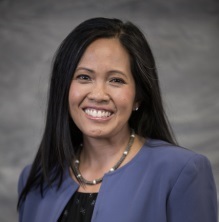Original Webinar Date: 05/13/2020
Implicit bias refers to the attitudes or stereotypes that affect our understanding, actions, and decisions in an unconscious manner. Everyone has them, and becoming mindful of how implicit and explicit biases impact our work with others is important. Implicit biases can lead to unfair differences in the expectations we hold for those we serve, how we interact with them, and the learning opportunities we provide.
This webinar recording is part of a four-part series that explores the dynamics of implicit bias and its impact on our work in mental health. Starting with the individual, this webinar challenges you to reflect on your own implicit biases and learn ways to become self-aware regarding your own biases and microaggressions. Additional sessions in this series focus on relationships with clients, organizational culture and climate, and engagement with communities.
 Dr. Rachele Espiritu is the co-director of SAMHSA's Pacific Southwest Mental Health Technology Transfer Center (Hawaii, California, Arizona, Nevada, and the Pacific Islands). Dr. Espiritu provides training, technical assistance, and capacity building at the local, territory, tribal, state, and national level in multiple systems, including mental health, substance use, public health, and education. She is a founding partner with Change Matrix LLC, a minority- and women-owned small business that motivates, manages and measures change to support systems that improve lives. She is a former School Board Member of Denver Public Schools (DPS), where she provided direction and leadership for Whole Child efforts and successfully passed a resolution for DPS to become a trauma-informed school district.
Dr. Rachele Espiritu is the co-director of SAMHSA's Pacific Southwest Mental Health Technology Transfer Center (Hawaii, California, Arizona, Nevada, and the Pacific Islands). Dr. Espiritu provides training, technical assistance, and capacity building at the local, territory, tribal, state, and national level in multiple systems, including mental health, substance use, public health, and education. She is a founding partner with Change Matrix LLC, a minority- and women-owned small business that motivates, manages and measures change to support systems that improve lives. She is a former School Board Member of Denver Public Schools (DPS), where she provided direction and leadership for Whole Child efforts and successfully passed a resolution for DPS to become a trauma-informed school district.
 Kaitlin E. Ferrick, J.D. is a Knowledge Transfer Specialist with the Pacific Southwest MHTTC and a Change Specialist with Change Matrix. Ms. Ferrick’s work focuses on driving equitable outcomes for children and families through strategic, cross-sector systems change. Previously, Ms. Ferrick was the Head Start State Collaboration Office Director at the Michigan Department of Education where she worked to improve collaboration between the federal Head Start and state early childhood systems. Ms. Ferrick attended law school at the University of Wisconsin, where she participated in the Innocence Project and assisted an array of indigent clients with their legal matters. She also taught in Los Angeles County Head Start classrooms as a Teach for America corps member.
Kaitlin E. Ferrick, J.D. is a Knowledge Transfer Specialist with the Pacific Southwest MHTTC and a Change Specialist with Change Matrix. Ms. Ferrick’s work focuses on driving equitable outcomes for children and families through strategic, cross-sector systems change. Previously, Ms. Ferrick was the Head Start State Collaboration Office Director at the Michigan Department of Education where she worked to improve collaboration between the federal Head Start and state early childhood systems. Ms. Ferrick attended law school at the University of Wisconsin, where she participated in the Innocence Project and assisted an array of indigent clients with their legal matters. She also taught in Los Angeles County Head Start classrooms as a Teach for America corps member.
 Dr. Suganya Sockalingam is a Founding Partner at Change Matrix, LLC, which supports agencies in addressing diversity, cultural competence, and cross-cultural communication as well as leadership, collaboration, and conflict management. Dr. Sockalingam focuses on supporting individuals, organizations, and systems to motivate, manage, and measure systems change. Currently, she serves as a training and technical assistance provider for several national technical assistance centers, and for other federal, national, state, territorial, and community agencies. She earned her doctorate at Washington State University and has worked in many capacities in public and behavioral health, both nationally and internationally, for over 25 years.
Dr. Suganya Sockalingam is a Founding Partner at Change Matrix, LLC, which supports agencies in addressing diversity, cultural competence, and cross-cultural communication as well as leadership, collaboration, and conflict management. Dr. Sockalingam focuses on supporting individuals, organizations, and systems to motivate, manage, and measure systems change. Currently, she serves as a training and technical assistance provider for several national technical assistance centers, and for other federal, national, state, territorial, and community agencies. She earned her doctorate at Washington State University and has worked in many capacities in public and behavioral health, both nationally and internationally, for over 25 years.